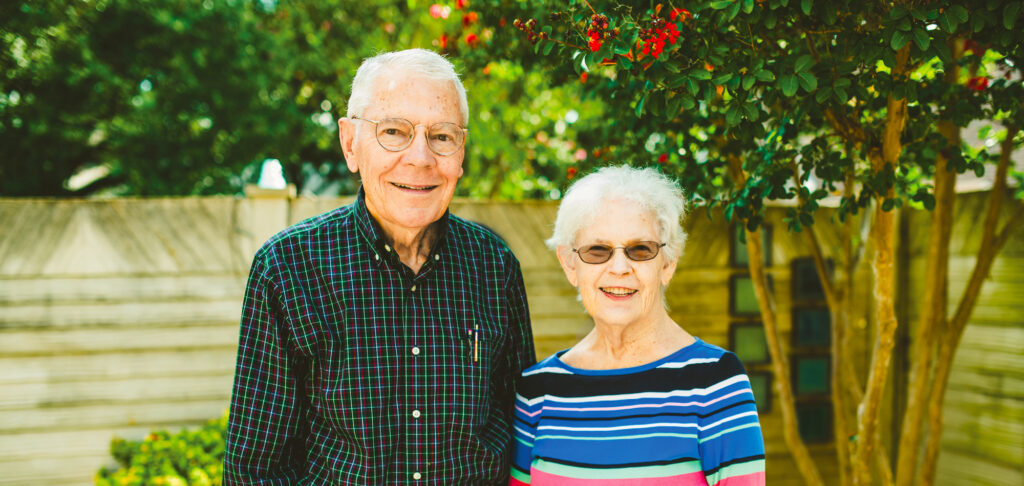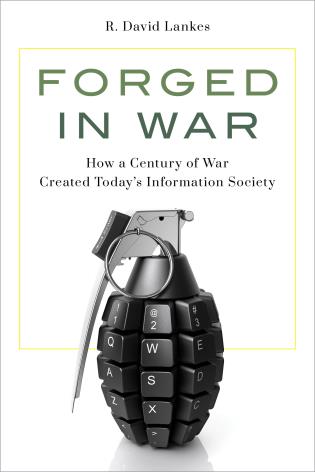
Had a great conversation with Steve Thomas on his Circulating Ideas podcast on my new book Forged in War. Check it out: https://circulatingideas.com/2021/06/15/201-david-lankes-forged-in-war/

Scholar | Speaker | Writer | Teacher | Advocate

Had a great conversation with Steve Thomas on his Circulating Ideas podcast on my new book Forged in War. Check it out: https://circulatingideas.com/2021/06/15/201-david-lankes-forged-in-war/
“Come together: Librarians across borders for better communities.” Next Library Festival 2021. Online.
Abstract: The great success of librarians in transforming libraries around their communities must be matched by a reinvention of library networks. These networks must be agile peer-to-peer connections of people.
Speech Text: See below
Script for the talk (typos and all):
Here’s the Too long; Didn’t Read version of my talk: The systemic change of libraries being shaped around their communities must be matched with a systemic change in the community of librarians themselves. Hierarchy and structure must give way to agile networks of people-not institutions.
Continue reading “Come together: Librarians across borders for better communities”I am so happy to announce a symposia series on New Librarianship.
Ten years ago MIT Press published The Atlas of New Librarianship. We are taking the opportunity of its 10th anniversary to explore some of the key issues in librarianship that have evolved and emerged since 2011 in a series of online symposia in October and November 2021. We would like to invite you to be a part.
The symposia series is sponsored by MIT Press, the University of South Carolina, the International Federation of Library Associations and Institutions, the British Library, KB National Library of the Netherlands, the U.S. Institute of Museum and Library Services, Gigabit Libraries Network, URFIST de Bordeaux, Enssib, and the Black Caucus of the American Library Association. We also expect more international organizations to join as sponsors shortly.
We seek abstract and creative format proposal submissions for ideas and approaches that can guide the field over the next decade and address the following areas:
Symposia sessions will be streamed live, free of charge, and with efforts made to meet accessibility needs. Detailed descriptions for each topical area are below.
Accepted abstracts will be presented during a symposium and published on the University of South Carolina ScholarOne digital platform. Three abstracts for each symposium will be invited for development into white papers and awarded $2500 stipends. In addition, selected presentations will be developed into commissioned essays to be included in the Atlas of New Librarianship. Submissions from library practitioners and early career faculty are highly encouraged.
Each symposium will focus on concepts that guide library practice and development, rather than focusing on skills or specific functions tied to a given institution. Participants will be encouraged to seek broad concepts and theory that ultimately determine how librarianship is defined in and outside of the context of a library, as well as beyond sectors (public, academic, school, etc.). These symposia seek the ideas that will guide the field over the next decade instead of the latest trends or services.
Abstract submissions should address one of the four following core topics:
Symposium 1: Equity, Diversity, and Inclusion: The vital need for diversity in librarianship stems from twin beliefs in the inherent value and dignity of all people and in the fact that the best knowledge is derived from the richest variety of sources. How can this be expressed as a core value of librarianship and what are its implications for the institutions librarians build and maintain? How can we address institutional racism, biases, discrimination, and inaccessibility in library institutions, education, and practice internationally? How might we integrate principles of inclusion and universal design?
Symposium 2: Post-Neutrality Librarianship: Librarians cannot be unbiased neutral information professionals and passionate advocates for better communities. To seek an improved society calls for a vision of what “improved” means. How can librarians reconcile the reality of making service decisions in a context of limited resources with a mandate to serve the whole community?
Symposium 3: International Influences: Concepts of diversity, of service, and of librarianship itself are strongly influenced by local contexts. The idea that the work of librarians looks the same in Kenya, Norway, China, and the United States is founded on the strained concept that universal structures serve all. What in librarianship transcends national boundaries, what varies, and what is the process that connects the two?
Symposium 4: A New Normal Agenda in a COVID-Affected World: The COVID pandemic has put in sharp contrast the role of libraries in communities, and made clear how what was once considered normal, must never be normalized again. Librarians must fight for universal broadband, better workforce development, and expand democratic conversations, to ensure the wellbeing of communities and understand their roles in a crisis. What does the new normal agenda for librarianship look like?
Paper Abstract Submissions:
Abstracts for papers to be presented during a symposium should discuss, analyze, and critique critical ideas, theories, and concepts addressed within the chosen symposium topic. Submissions will be evaluated on quality of content; theoretical, conceptual, or practical significance; relevance for practice; originality; and clarity. The maximum length for an abstract, including references, is 500 words. Appendices should not be included. No author names should be listed in the abstract submitted for review.
Creative Format Contribution Proposals:
In addition to the call for paper abstracts, we invite multimedia contributions in visual, audio, audiovisual, or hybrid formats. Contributions should include a sample of work and a contributor statement and engage with critical ideas, theories, and concepts addressed within the chosen symposium topic. Submissions will be evaluated for quality of content; theoretical, conceptual, or practical significance; relevance for practice; and creativity.
Editorial Board Review: Submissions will be refereed by an editorial board assigned to each symposium area. Please see the “About” page for Editorial Board Member information.
Important Dates
Click here for more information and to submit your abstract: https://scholarcommons.sc.edu/newlibrarianshipsymposia/cfp.html
If you were waiting for an audio version of my new book, you’re in luck. Now available on Audible and Audiobooks.com. Read by Tom Perkins and published by Tantor Media. Unabridged, run time 9:44.
I am very pleased to announce that I will be joining The School of Information at The University of Texas at Austin as Full Professor and Virginia & Charles Bowden Professor of Librarianship. My appointment starts in August.
Click here for the announcement including the appointment of some great new colleagues: https://www.ischool.utexas.edu/news/texas-ischool-welcomes-new-faculty-members
Here is more information on the Bowdens and the Professorship they created: https://giving.utexas.edu/bridging-the-past-and-the-future/

The following is an email I sent out to the alumni:
Greetings Alumni of the School of Information Science,
I am writing you today to let you know about changes in administration of the school. I will be stepping down as director of the school at the end of July. I have accepted the position of Virginia & Charles Bowden Professor of Librarianship in the iSchool at University of Texas at Austin. Dr. Karen Gavigan will be interim director for the 2021-2022 academic year. There will also be a national search for a new director.
There is simply no better choice to shepherd the school through this transition than Dr. Gavigan. She has been an integral part of the school as a faculty member since 2010 and has the support of the staff, faculty, alumni, and administration.
I want to be very clear that the school is in excellent shape. Enrollment in all of our degree programs is up. We have a strong financial position and an amazing faculty devoted to students and excellence. The school’s portfolio in research, diversity initiatives, accreditation status, and international reputation are very strong and show an upward arc.
Let me say that I have loved my time as director. Certainly, there have been challenges, a global pandemic for example, but the school’s community of students, faculty, staff, alumni and partners has always demonstrated resilience and actually grown through these challenges. One may rightly ask why then am I leaving for Texas?
There are two parts to that answer: the Texas position is my dream job, and the school is ready for a change in leadership. Many don’t know, but the director position is a 5 year appointment, and I have just finished my 5th year at the school. While I am eligible for reappointment, I sincerely feel the school is ready for someone to take the achievements of the past 5 years and push even further.
My job over the past years was to create a strong faculty and shared governance. I was tasked with increasing the reputation of the school, ensuring continued accreditation, and growing the undergraduate program. We have gone up in the national rankings, we received a flawless reaccreditation, and our undergraduate program enrollment has more than doubled. I am not taking credit for these achievements. My job was simply to coordinate the work of our community.
It is time for a new leader to create stronger bonds with alumni and partners while connecting directly with students. I have little doubt that Karen, and her successor will continue the growth of our strong school; growth in numbers, but more importantly in reputation, quality, and impact.
In closing, let me thank you all for your support, your thoughtful challenges, and your excellence. I will always value our time together.
At Carolina’s School of Information Science graduate hooding ceremony to I give one last lecture:
I will not be the first nor the last to point out that you are graduating at a unique point in history. A time when people are talking about a reopening. A sometimes halting, undoubtedly uneven, and often inequitable reopening of society. It is easy to look ahead to this reopening, to the time after you graduate, to the time of vaccines. This is good, and you have certainly earned it. But I ask you to also reflect on the year that has just passed. I ask you to do this because it will be a time that will drive this nation in the coming decade and as librarians, as information professionals, you form the vital memory of our nation.
For all this past year has been one of loss. For too many the loss of a loved one, friend, or colleague. But for all a loss of certainty. In this past year a pandemic made us question the safety of our neighbors, the choices of our community, and the tenuous nature of health care in this nation. In the past months an insurrection at the Capital made us question the strength of our democracy, of our own ideals, and of the intention of our leaders. The murder of black men at the hands of police have made us question our own role in eliminating racism, in our privilege, and in the foundations of our civic institutions.
Continue reading “One Last Lecture”Libraries Lead the New Normal is a new podcast hosted by Mike Eisenberg (Dean & Professor Emeritus, Information School, University of Washington) & David Lankes (Director & Professor, iSchool, University of South Carolina).
There’s an emerging new normal. 2020 was brutal and has affected all aspects of our lives. As we come out of the pandemic in 2021 and beyond, we must ask, “Are these changes temporary and short-lived or are more fundamental and long-term?” It seems like this is a good time for re-examination and possibly reset of home-life and work-life, education, commerce, social life, politics, and even recreation. We think that this can be a valuable time for life-altering, ground breaking, and transformative change.
Continue reading “Libraries Lead the New Normal”Lankes, R. David (2021). Forged in War: How a century of war created today’s information society. New York, NY: Rowman & Littlefield.
I am proud to announce my new book Forged in War: How a Century of War Created Today’s Information Society published by Rowman & Littlefield.

Many of what we think of as Information Age tools and media— computers, cell phones, the internet, encryption, and more— evolved directly out of modern warfare. These tools started with World War I (which began not with arms but with England cutting off underwater cables to Germany to isolate it), accelerated through World War II and the Cold War, and now play a central role in both declared and non-declared conflicts like election interference and cyberbattles.
We buy phones, smart speakers, and virtual assistants like Siri and Alexa to help us do our work and answer that one trivia question that bugs us. Yet these devices are data gatherers. They collect, repackage, and monetize our questions, purchases, photographs, and web surfing to form a data industry now larger than the oil industry.
Forged in War takes a critical look at the systems we use and how we ended up in a society that increasingly values data over personal liberty and commerce over the public good. It tells a compelling and previously untold story of how our ideas of information and knowledge reflect the century of war that has militarized our worldview.
R. David Lankes’s work has been funded by organizations such as the MacArthur Foundation, the Institute for Library and Museum Services, NASA, the U.S. Department of Education, the U.S. Department of Defense, the National Science Foundation, and the U.S. State Department. This, his latest book, will help all of us learn how war has shaped our world and how to begin to create an agenda to stand down weaponized data and a media that seeks to own our personal, even intimate, data like one owns a gold mine.
Check out the star review in LibraryJournal: “VERDICT This most recent book by Lankes is ideal for readers seeking a more comprehensive look at information dissemination technology, its context, and its impact on the way in which we now live.“
Available to order from Rowman & Littlefield
30% DISCOUNT OFF LIST PRICE USING CODE RLFANDF30
978-1-5381-4895-2 • Cloth May 2021 • $36.00 • after discount: $25.20
978-1-5381-4896-9 • eBook May 2021 • $34.00 • after discount: $23.80
On Tuesday I had the honor of joining a launch event with the National Library of Peru. The library, working with the Library of Valencia, have translated Expect more into Spanish. It is a part of the National Library of Peru’s Reading, Library and Community Book seriesBest yet, they have released it to the world!
You can link to the Spanish eBook here: https://bpdigital.bnp.gob.pe/info/ampliemos-expectativas-exijamos-mejores-bibliotecas-para-lidiar-con-la-complejidad-del-mundo-actual-00638600
Here are my remarks for the release:
I am so happy to join you today for the launch of Expect more as part of the “Reading, Library and Community” Book series. I want to thank the National Library of Peru and the librarians of Valencia for their work translating and publishing the Spanish language version.
Continue reading “Ampliemos expectativas – Expect More in Spanish Free Online”